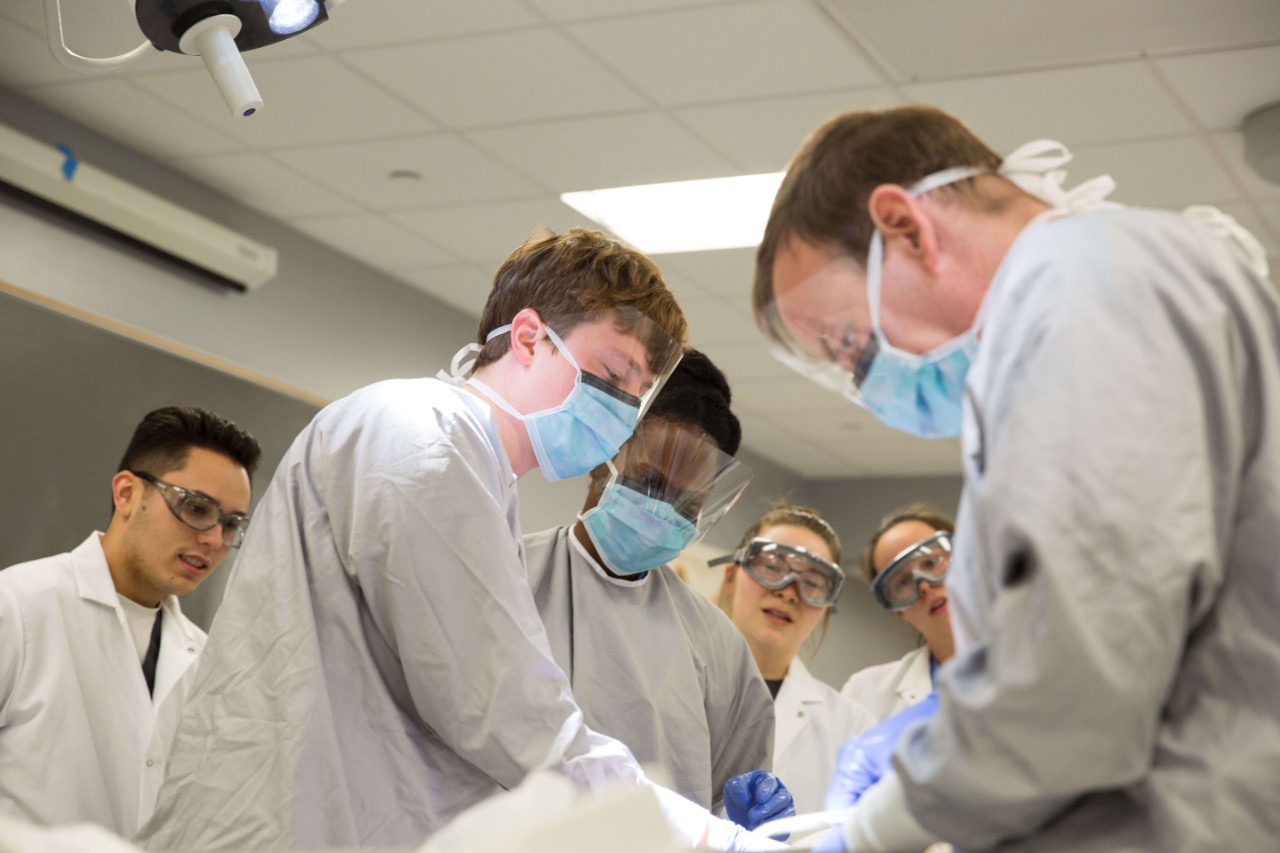
human physiology

Why Major in Human Physiology?
Physiology is the study of how living organisms function under normal conditions and is a foundational component of many careers in the health sciences. The BS in Human Physiology is intended for undergraduate students interested in careers in medicine, biomedical research, industry or other allied health professions for which a comprehensive knowledge of human physiology is required. The curriculum includes core courses in biology, chemistry, physics, and mathematics along with extensive upper level courses in human anatomy and physiology. The major is particularly suited for those who plan to continue their studies at the post-baccalaureate level through graduate or professional training. By selecting from a list of recommended electives, students can easily achieve all of the necessary prerequisite requirements for admission into medical and dental schools and be prepared to take the applicable entrance exams. Alternatively, those interested in other careers within the health sciences can choose among a broader list of electives that further enhance their understanding of human health and disease. The curriculum is intentionally demanding with the goal of providing the next generation of leaders in the health sciences with foundational knowledge in human physiological function at the molecular, cellular and organism level.
Uniqueness of Our Program
A unique aspect of the proposed major is the broad focus on human physiology that includes 23 credits in anatomy and physiology, including 4 courses with a laboratory component that provide extensive hands on exposure to anatomical structures and physiological mechanisms. A major strength of the proposed program is the inclusion of a course in Functional Anatomy which utilizes human cadavers, prosected human specimens, models, EMG and electro-physiological demonstrations, X-rays, dry biological materials, interactive videodiscs, and other instructional aids to provide in depth understanding of the gross (dissectable) structures of the human body. Students also have access to state-of-the art research laboratories and facilities with advanced technology for specialized study in cardiovascular, muscular and neural physiology, biomechanics and motor control. Students are encouraged to participate in undergraduate research through individualized independent study and senior-level honors theses. Valuable research experience is gained through involvement in funded research projects and interdisciplinary research groups.
Our Curriculum
The Human Physiology Curriculum is designed to allow students the ability to take all required prerequisite courses for admission into medical schools while obtaining a strong background in human physiology. Students will take foundational science courses in biology, chemistry/biochemistry, math, physics, and nutrition as well as additional breadth requirements in sociology, psychology and English. Fundamental courses include courses in human anatomy and physiology, functional (gross) anatomy, exercise physiology and research methods. The curriculum also allows students that are specifically interested in attending medical school to choose from a narrowed list of electives to fulfill additional admission requirements and prepare to take the MCAT.
Academic Standards
Students must demonstrate satisfactory progress towards the degree and must maintain a minimum GPA of 3.0 by the end of their 4th semester in order to remain in the program and earn a BS in Human Physiology. Students not meeting the minimum GPA requirement will be eligible to change into another major (e.g., BS in Exercise Science).
